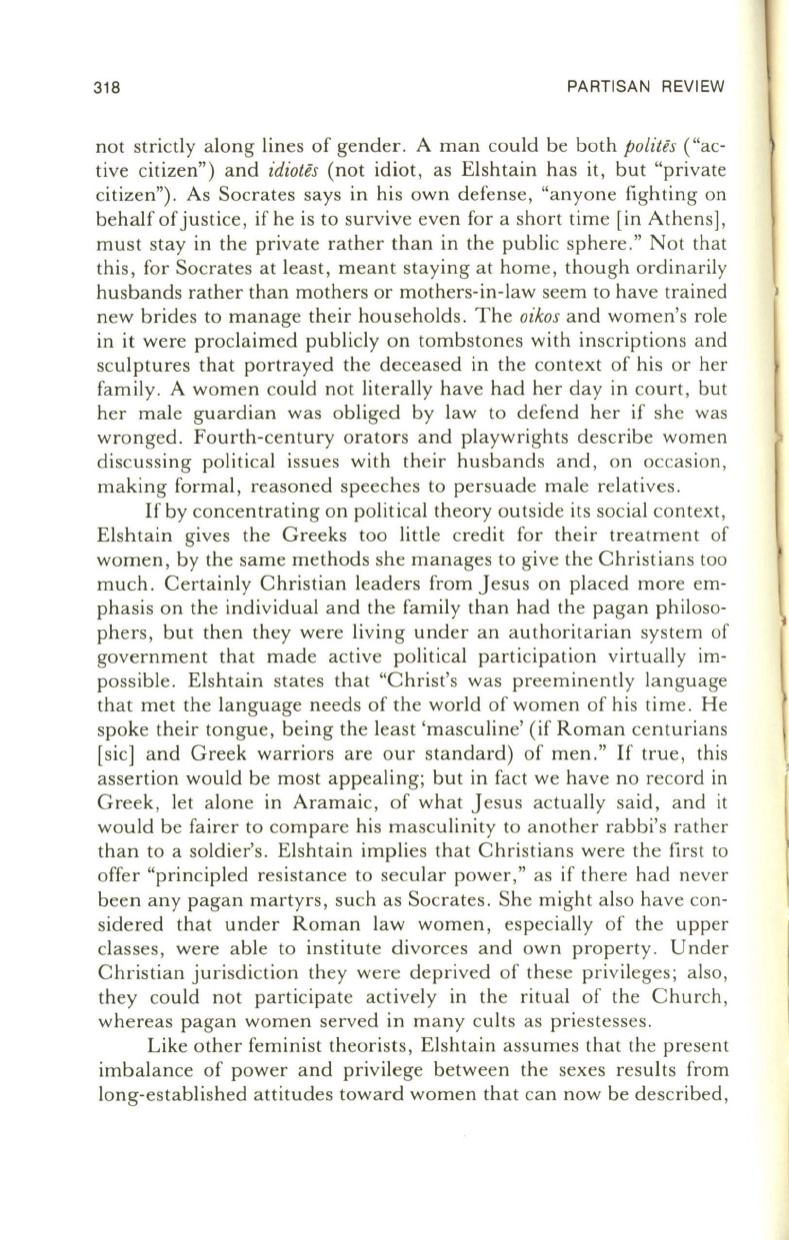
318
PARTISAN REVIEW
not strictly along lines of gender. A man could be both
polites
("ac–
tive citizen") and
idiotls
(not idiot, as Elshtain has it, but "private
citizen"). As Socrates says in his own defense, "anyone fighting on
behalf of justice, ifhe is to survive even for a short time [in Athens],
must stay in the private rather than in the public sphere." Not that
this, for Socrates at least, meant staying at home, though ordinarily
husbands rather than mothers or mothers-in-law seem to have trained
new brides to manage their households. The
oikos
and women's role
in it were proclaimed publicly on tombstones with inscriptions and
sculptures that portrayed the deceased in the context of his or her
family. A women could not literally have had her day in court, but
her male guardian was obliged by law to defend her if she was
wronged . Fourth-century orators and playwrights describe women
discussing political issues with their husbands and, on occasion,
making formal, reasoned speeches to persuade male relatives.
If
by concentrating on political theory outside its social context,
Elshtain gives the Greeks too little credit for their treatment of
women, by the same methods she manages to give the Christians too
much . Certainly Christian leaders from Jesus on placed more em–
phasis on the individual and the family than had the pagan philoso–
phers, but then they were living under an authoritarian system of
government that made active political participation virtually im–
possible. Elshtain states that "Christ's was preeminently language
that met the language needs of the world of women of his time. He
spoke their tongue, being the least 'masculine' (if Roman centurians
[sic] and Greek warriors are our standard) of men."
If
true, this
assertion would be most appealing; but in fact we have no record in
Greek, let alone in Aramaic, of what Jesus actually said, and it
would be fairer to compare his masculinity to another rabbi's rather
than to a soldier's. Elshtain implies that Christians were the first to
offer "principled resistance to secular power," as if there had never
been any pagan martyrs, such as Socrates. She might also have con–
sidered that under Roman law women, especially of the upper
classes, were able to institute divorces and own property . Under
Christian jurisdiction they were deprived of these privileges; also,
they could not participate actively in the ritual of the Church,
whereas pagan women served in many cults as priestesses.
Like other feminist theorists, Elshtain assumes that the present
imbalance of power and privilege between the sexes results from
long-established attitudes toward women that can now be described,


